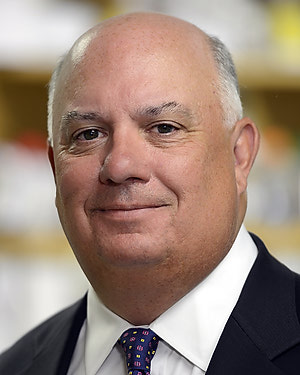Research Lab Results
-
Welling Laboratory
Dr. Paul A. Welling and his research team explore the genetic and molecular underpinnings of electrolyte physiology, potassium balance disorders, hypertension and kidney disease. A major thrust of current research activity is devoted to understanding how faulty genes and environmental stresses drive hypertension. The research is providing new insights into how the Western diet triggers deleterious responses of salt-sensitivity genes. The Welling laboratory employs a multidisciplinary approach, spanning from gene discovery, molecular biology, genetically engineered mouse models to translational studies in humans. By illuminating pathophysiological mechanisms and translating the discoveries to develop more effective diagnostic and therapeutic strategies, Welling’s group is striving to improve the health of at-risk individuals and patients with kidney disease and hypertension.
Dr. Welling is the Joseph S. and Esther Hander Professor of Laboratory Research in Nephrology. He has been continuously funded by the National Institutes of Health for over 25 years. Currently he serves as Coordinator of a Global Research Network, funded by the LeDucq Foundation. More about his research can be found at https://www.wellinglab.com/ -
Richard Rivers Lab
The Richard Rivers Lab researches vascular communication with a focus on microcirculation physiology. Our team seeks to determine how metabolic demands are passed between tissue and the vascular network as well as along the vascular network itself. Our goal is to better understand processes of diseases such as cancer and diabetes, which could lead to the development of more targeted drugs and treatment. We are also working to determine the role for inwardly rectifying potassium channels (Kir) 2.1 and 6.1 in signaling along the vessel wall as well as the role of gap junctions. -
Sharon Turban Lab
Research in the Sharon Turban Lab focuses on the effects of sodium and potassium on blood pressure and on kidney function. We lead the Chronic Kidney Disease-Potassium (CKD-K) clinical trial, funded by American Heart Association, which examines the benefits and safety of two levels of potassium intake in patients with kidney disease. Other research includes the Chronic Renal Insufficiency Cohort (CRIC) study, which aims to improve the understanding of chronic kidney disease and related cardiovascular illness.
-
Intestinal Na/H Exchangers
Secretory diarrhea is a leading cause of childhood morbidity and mortality in developing countries. While diarrhea can be treated with oral rehydration solution (ORS), inclusion of zinc with oral ORS has been shown to reduce the duration of diarrhea. However, how zinc improves diarrhea is not known. It has been shown that zinc acts as an intestinal epithelial cell basolateral potassium channel blocker of cyclic AMP-mediated chloride secretion. We discovered that zinc also stimulates intestinal sodium and water absorption via the epithelial Na/H exchanger, NHE3. Zinc reverses the effect of cyclic AMP inhibition of NHE3 activity. The effect of zinc on NHE3 cannot be duplicated with other divalent metal ions. It has been well established that Na/H exchanger regulatory proteins are involved in NHE3 regulation. Whether these regulatory proteins are involved in zinc stimulation of NHE3 is a focus of our study. Our goal is to reveal mechanisms to explain how zinc improves diarrhea and to understand the role of zinc in salt and water homeostasis in the gut. Our study will provide a scientific basis to justify the inclusion of zinc in ORS for the treatment of secretory diarrhea.

